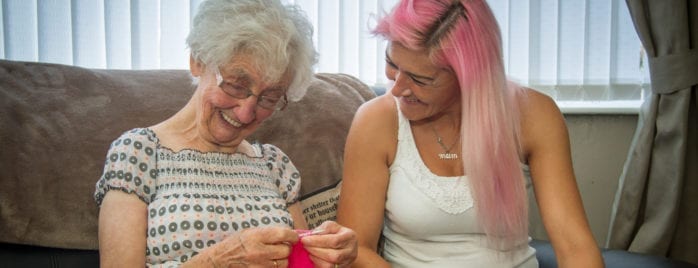October 27, 2017
Our views on CareRooms’ ‘NHS AirBnB’ plans
We woke up yesterday to some news about plans to launch what is being called an ‘NHS AirBnB’ and it left us pretty concerned. Here, Rachael Stott, our Director of Business Development and Innovation, gives her views on CareRooms’ plans and why they are problematic.
Today, the buzz of my phone has been incessant. Colleagues, friends, family you name it… everyone telling me that there is a new form of care, a new kid on the block, a kid that looks very much like one of our organisational offspring – albeit with less headlines and a little more common sense.
CareRooms, a new start up in the South of England has been developed by a Doctor who has seen the challenge of bed blocking and what it’s doing to the NHS. Good on him, we need more people thinking about this, with more creativity, and a real open-mindedness to how digital solutions can help us move forwards. Bed blocking we all know is a huge drain on the NHS – a hybrid of over-demand and risk aversion. Why wouldn’t you want to move people on?
All in all it sounds quite good, so why the concern around the application of some common sense? Well first of all this app has been introduced as ‘an obvious solution’, ‘why did no one think of this before’ and the care sector has been expected to ‘see the potential’, ‘accept digital disruption’ and ‘challenge the norm’. However (and I say this as a 30-something and early adopter of new technology) this app has made the classic mistake of being invented in a vacuum. It has a slight feel of the Dragon’s Den waiting room to me, except in this scenario someone comes in with a great idea and it gets turned into an end product without the key part of the process – hearing some essential critique. Somewhere along the way the social norms, the ethics, the rules in which that product/service has to operate have been forgotten. It’s like someone saying – I know what why don’t we cut Primary Care out of the equation, we don’t need them – let’s allow people to buy the drugs they want from Amazon – simpler and cheaper – it’ll save the system a fortune. Could you imagine the language – risk, unsafe, naïve, stupid, ridiculous – and a few others with four letters to precede those words. Also interesting is the ‘new’ idea of using community assets, for working with people in their own communities to benefit others – this is not new – this is essential in the current financial climate.
The common sense comes from applying the simplicity of an app based service like Uber, Deliveroo or AirBnB to something as complex as care. I’m still not 100% convinced of the safety of some of those services (not just their driving) and they are delivering drunk people, pizzas and city breaks not care and support for people at what is likely to be their most vulnerable time of life. Can we really take those models as a template and just overlay them to care? Surely we need to look at how they might work first. If someone has come out of hospital and doesn’t feel comfortable going back to their own home, that suggests that they need some more care and support. And if that’s the case – why would anyone want to go and live with someone who has no care or support skills? Surely these individuals need some safeguarding training, some meds systems, some reference checks, some health and safety training, some food hygiene courses. In fact if we’re paying them and they’re doing this surely we should just formalise what they do – because it’s probably worth going out and checking they’re who they say they are, and doing what they say they do on a regular basis. And then, we’ll have a model won’t we, then we’ll have a real model. However the thing is – we do have this model – it’s called Shared Lives, it’s been around since 1978 and the organisation I work for, PSS set the first scheme up in Liverpool. In 2017 the model is being used in multiple pilots across the UK by ourselves and our Shared Lives provider colleagues to discharge people from hospital into registered and trained Carers homes. A small bit of desk research by CareRooms would have made the last few days’ news articles very different ones – because I agree Shared Lives needs to go digital – but it’s key components of safeguarding, matching and monitoring absolutely have to be part of that process. Why don’t we focus on growing these tried and tested services instead of starting again – too often people think of innovation as the ‘next big invention’, the front page of the Health Service Journal or the next NHS Innovation Award instead of taking what we have, turning it upside down and seeing what falls out – after all that’s where post-its came from – and who doesn’t need those.
For more information about our Shared Lives scheme, click here.
To become a Shared Lives carer and help provide someone with a welcome home from hospital, click here.

